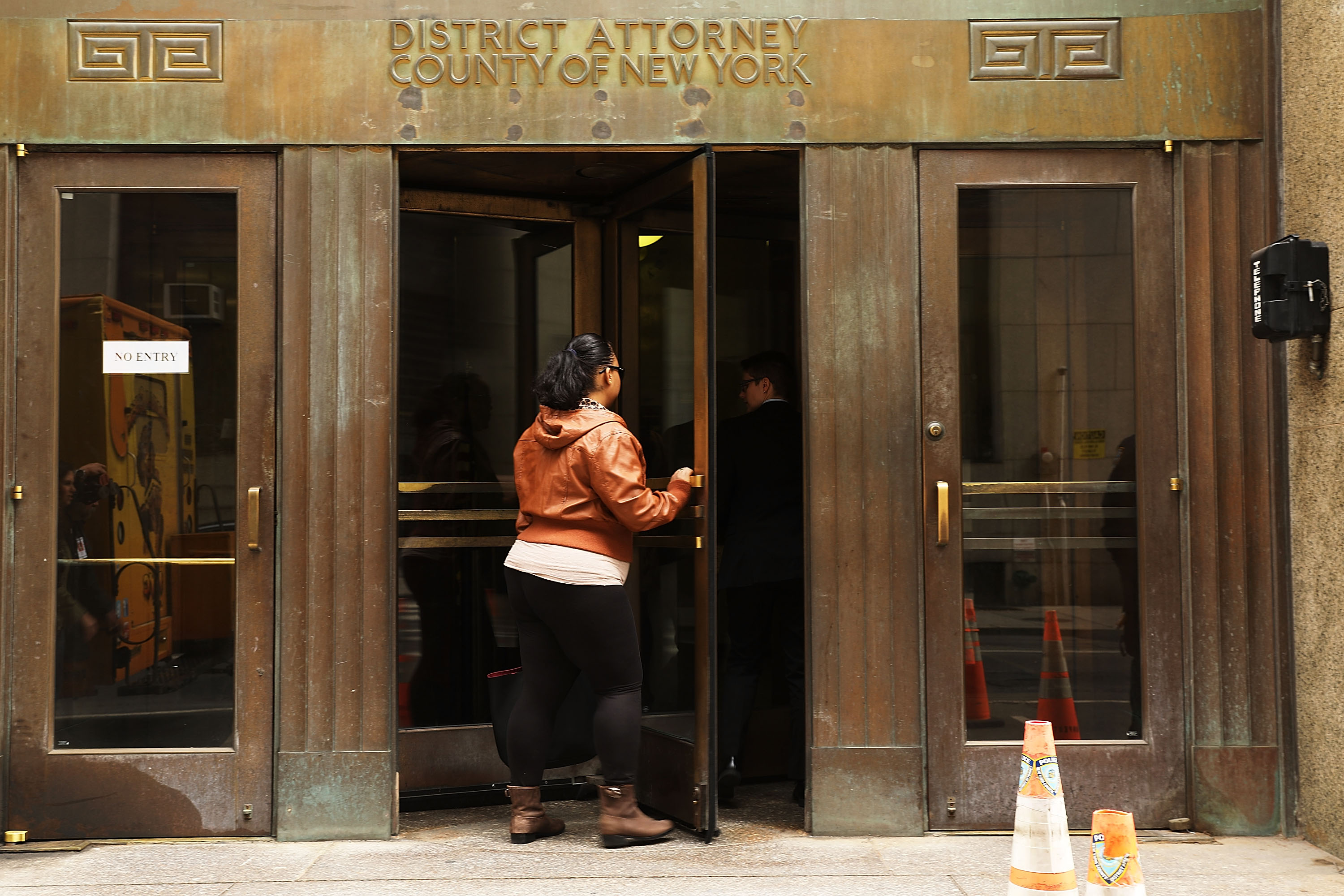Political Report
New York Can Do More Than Adopt Texas’s Discovery Laws
New York would benefit from looking at Texas, which is surprisingly progressive on various criminal justice issues. But while legislative reforms are necessary, they are in no way sufficient.
This week, the New York Times ran an editorial urging New York to overhaul its draconian system that lets prosecutors withhold evidence from defendants until the eve or even day of trial. The system gives them “free rein to leave defendants in the dark about aspects of their cases for months or even years.” Prosecutors, the editorial board writes, “do not have a legal obligation to turn over in a timely fashion all police reports, witness names, DNA evidence, surveillance footage or anything else from their investigative files.” Defense attorneys say this “puts a ‘blindfold’ over the eyes of defense lawyers and their clients”––this Daily Appeal writer has lamented it for years––“and it runs up against Americans’ basic understanding of how fairness is meant to work in the legal system.” New York’s law leaves people accused of crimes with an impossible choice: plead guilty to a crime with little information about the evidence against them, or go to trial and risk even harsher punishment. Most other states, including Texas and North Carolina, have made changes that level the playing field by granting open and early disclosure of evidence.
It turns out that Texas is surprisingly progressive on various criminal justice issues. As the Daily Appeal has pointed out, Texas has made good policies from bad mistakes. Laws named after sympathetic victims are often the worst form of knee-jerk legislation, leading to exceedingly harsh punishments and overcriminalization. In Texas, however, several laws named for victims of state misconduct have put Texas on the forefront of various criminal justice reform efforts, including eyewitness identification and junk science.
In 1985, when she was a Texas Tech University sophomore, Michele Mallin was raped at knifepoint by a stranger. During the hours-long encounter, she tried to study and memorize the man’s features, so that she could identify him later. When the police showed her photographs to identify the attacker, she identified Timothy Cole immediately, and with confidence. But she was wrong. Despite the lack of physical evidence, the jury believed Mallin, and Cole was sentenced to 25 years in prison. The real rapist waited for the statute of limitations to run out and then sent a series of confessional letters to the court and prosecutors, only to be ignored. Finally, he sent one to Cole himself, but it was too late: Cole had died in prison. Cole’s mother received the confession and took up the case; DNA testing later cleared Cole.
Texas police departments now use double-blind and sequential lineups, which have been shown to reduce mistaken identifications with little or no reduction in accurate identifications. A lawyer with the Innocence Project of Texas said, “In terms of conducting eyewitness identification, Texas is doing better than any state in the Union.” New York and other states have refused to adopt either double-blind or sequential lineups, despite overwhelming evidence that the procedures help identify the right person, which, in theory, is what lawmakers and law enforcement wants.
Another reform to come out of Tim Cole’s ordeal was a bill known as the “junk science” statute. The first of its kind in the nation, it permits a defendant to bring a writ of habeas corpus in cases where new scientific evidence has come to light, or where the scientific evidence used to convict has been shown to be false, misleading, or inaccurately applied. The law has already prevented an innocent man’s execution. The president of the nonprofit National Center for Reason and Justice said, “I’m just stunned, [because] I never thought there would be a time in my life when Texas would be a beacon of legal progress.”
The New York Times titled its editorial about discovery reform “How to Make New York as Progressive on Criminal Justice as Texas.” New York would, without a doubt, benefit tremendously from these and other changes. It would become fairer and safer.
But those who have experience with the criminal system in Texas caution that legislative reforms are necessary, but in no way sufficient. The Daily Appeal spoke to Trudy Strassburger, senior legal counsel at The Justice Collaborative, who previously served as deputy director of the Capital Area Private Defender Service, in Texas. “The scientific writ statute is pretty amazing,” she said. “The language of the statute is amazing, but those writs rarely get filed because indigent defense is so underfunded here.” In general, the criminal court of appeals in Texas is “pretty horrendous,” and when cases on scientific writs come up for appeal, the judges have interpreted the law very narrowly.
The situation is similar for discovery practices: “Even with great discovery rules, the lawyers say, ‘I’m not getting paid to sit for 20 hours and watch dash cam video,’” Strassburger says. “They’re paid a flat fee so they have every incentive in the world to finish the case as soon as possible.” And the judges rely on the prosecutors, she adds, to tell them how to interpret the law. The prosecutors claim it only applies to discovery after a case has been indicted, which is not what the law says, but judges have sided with prosecutors. For the most part, Texas lacks a culture of rigorous and zealous defense. In many parts of New York, however, such a culture does exist, and, in those places, we can expect Texas-like reforms to really make a difference.
Article was published as part of the Jan. 18 Daily Appeal newsletter.

